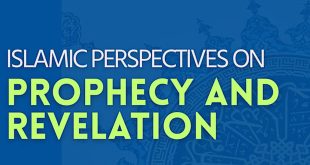The author of the study, Toronto professor Sarah Shah, says her report shows what biases and socio-economic pressures women face and will be the basis for a new “data hub” about Canadian Muslims.
A new study entitled “Voices That Matter: An Intersectional Analysis of Canadian Muslim Women” — released by a Canadian organization — sheds light on how Canadian Muslim women experience poorer social and economic conditions compared to non-Muslim women.
The Canadian Council of Muslim Women (CCMW), a Toronto organization that helps empower Canadian Muslim women, teamed up with University of Toronto sociology professor, Sarah Shah, who conducted and prepared the study.
Shah said the “qualitative findings” about Muslim mothers surprised her.
“I was shocked and appalled to hear about the way that mothers are treated,” she said. “Basically, mothers — young mothers with young children — are denied basic services, like transit workers refusing to lower the bus for women with strollers, or nurses denying basic care for new moms. These experiences of being dehumanized and dismissed are consistent across narratives, indicating the issue is systemic and systematic.”
She said this study is the first of its kind in Canada, utilizing both survey data and interviews from a diverse group of Muslim women.
“The surprising thing about the quantitative findings is that nothing was surprising,” Shah said. “An overview of Canadian Muslim women’s sociodemographic and socioeconomic outcomes shows they have poorer outcomes compared to non-Muslim women, and that the specific groups of women experience poorer outcomes compared to the overall sample of Muslim women.”
Nuzhat Jafri, the Executive Director of CCMW, said a beneficial study like this is one of the organization’s top priorities.
“Adapting our projects to better meet the specific needs of the diverse groups that we serve is one of our top priorities here at CCMW,” she said. “We are delighted that the findings of this unique and much-needed study will help us achieve this. These are the voices that really matter to us and we are committed to incorporating them into our planning and decision-making. We would like to thank Dr. Sarah for all her work on the project, and the Federal Department of Women and Gender Equality whose financial support has made the report possible.”
As a whole, the study also revealed the ways in which queer, disabled and Black Muslim women, as well as new residents and single mothers, face even worse conditions than Muslim women in general.
For example, the survey found that Black Canadian Muslim women are expected to provide for their families even before they get married or have kids.
“This kind of pressure to do it all creates chronic stress that Black Canadian Muslim women contend within their daily lives, making things like pursuing education feel like a selfish choice,” she said. “The long-term consequences of chronic stress include both physical and mental health-related concerns.”
A problem plaguing many single Muslim mothers is navigating the job market, which the study found to be particularly discriminatory against them.
One woman, who recently moved to Canada and has no family there, said they are expected to learn to build a life without any government assistance.
“When you take the path of living the life yourself with kids, trying to sustain a job, and I work for a nonprofit so money is tight,” she said. “The constant fear of being let go, or ‘we can’t accommodate you and your kids,’ it is a constant fear that I live with because it’s something that organizations do.”
Shah calls this the “mommy track,” which is the penalty that women pay at work for having children. She says this discrimination can manifest in many different ways, like being skipped over for promotions, being expected to work fewer hours or even being fired for juggling their children and their job.
CCMW plans to use insights from this report to apply new approaches to their future projects in order to ensure that they address the unique needs of Canadian Muslim women. “Voices That Matter” is part of the organization’s Strengthening Capacity project, which launched in 2019 to improve the national board and chapters to achieve equality for all Muslim women and girls.
Last December, CCMW Durham members donated shoeboxes as part of the Shoebox Project for Women, which is a Canada-based organization that collects and distributes shoeboxes filled with gifts and supportive messages for women impacted by homelessness.
Shah said that most of the research done on Muslims in Canada is not quantitative and any survey data is taken from the census, which only includes the religion question every other time. That means, the data from this study mostly drew from the 2011 National Household Survey because the 2021 survey is not available yet.
“To address this issue, my colleagues and I at the Institute of Islamic Studies at the University of Toronto are working in collaboration with CCMW and other Canadian Muslim organizations to create a data hub,” she said. “This initiative is called the Muslims in Canada Data Initiative (MiCDI). We hope to advance knowledge production, mobilization, and a better understanding of Muslims in Canada, including the Muslims often overlooked at the margins.”
source:americanmuslimtoday
 Ijtihad Network Being Wise and Faithful Muslim in the Contemporary World
Ijtihad Network Being Wise and Faithful Muslim in the Contemporary World
